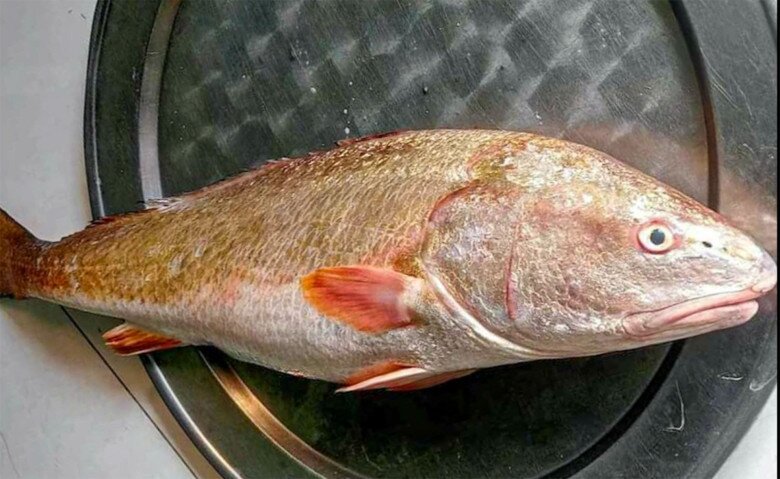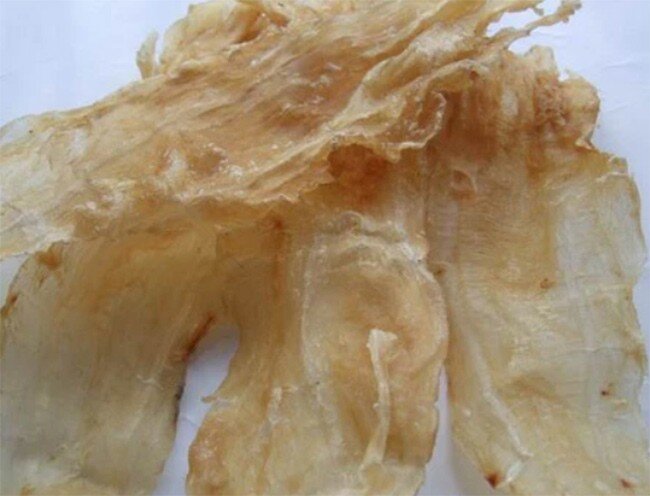The Giant Scat is a rare and valuable fish found in the waters of Vietnam, India, Indonesia, Sri Lanka, and China. With the scientific name Otolithoides biauritus, it is also known as the Golden Scat, Yellow-finned Scat, or simply Scat. What sets this fish apart is its ability to thrive in freshwater, brackish, and seawater environments. From January to April each year, they migrate to brackish river mouths to spawn, after which the fry make their way upstream to freshwater habitats, eventually returning to the sea as they mature. These fish can grow to impressive sizes, with adults weighing up to several hundred kilograms and reaching maximum lengths of 160 cm.

The Giant Scat is easily identifiable by its shimmering golden color and distinct physical characteristics, including a pointed snout, wide mouth, and long lower jaw that extends beyond the eye socket. Its teeth are strong, and its dorsal fin is elongated. While the live fish displays a silvery white to pinkish hue, its body turns a distinctive shade of yellow upon death, ranging from pale to deep golden.
In August 2023, a fisherman in Son Tra, Danang, Vietnam, named Cong, made headlines when he caught a strange-looking fish weighing over 3.5 kg and adorned with iridescent scales. It was later identified as a possible Giant Scat, sparking curiosity among locals and highlighting the rarity of this species.

The Giant Scat’s value lies not in its meat but in its air bladder, which is considered a delicacy and possesses remarkable medicinal properties. Referred to as the “ginseng of the sea,” the air bladder contains high levels of protein, with 442 grams of protein per 500 grams of bladder. It is believed to be a potent tonic, enhancing blood circulation and benefiting those suffering from weakness and anemia.

Additionally, the Giant Scat’s air bladder has found a crucial application in medicine, particularly in the production of self-dissolving surgical sutures. These sutures, made from the bladder, are widely used in developed countries and are highly valued for their effectiveness. The high demand for the bladder has driven up its price, with fresh bladders fetching a staggering $45,000–$55,000 per kilogram, or approximately 1–1.3 billion Vietnamese dong. Given the significant weight loss during drying, it takes around 40 kilograms of fresh bladders to produce just one kilogram of dry bladder.
Recognizing the Giant Scat’s rarity and importance, the Vietnamese government has placed it on a protected list, prohibiting indiscriminate fishing practices to ensure the species’ preservation.
































